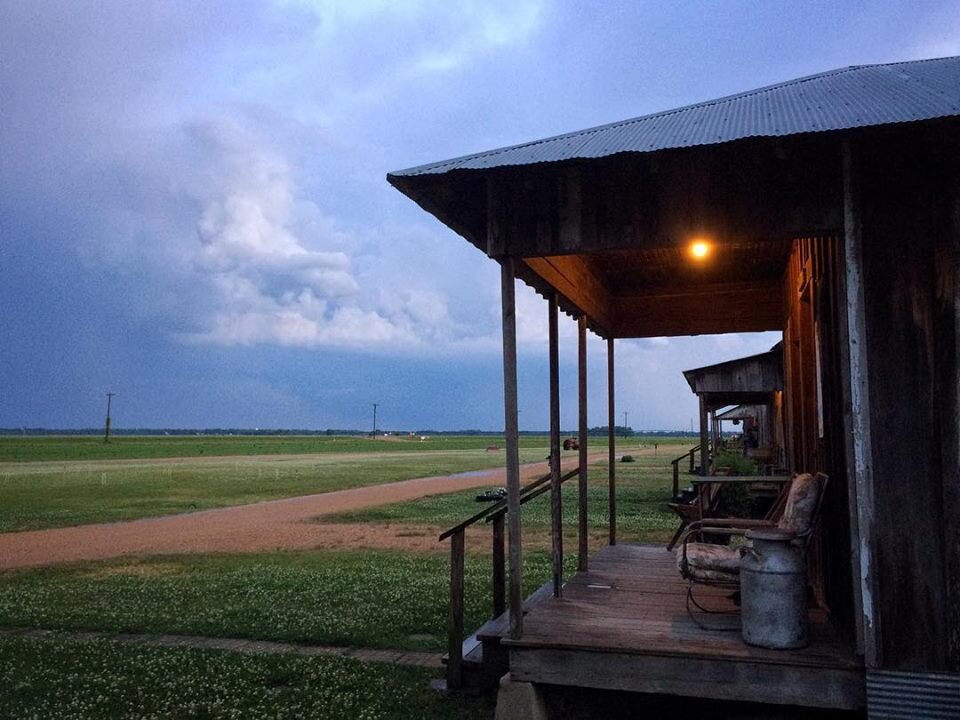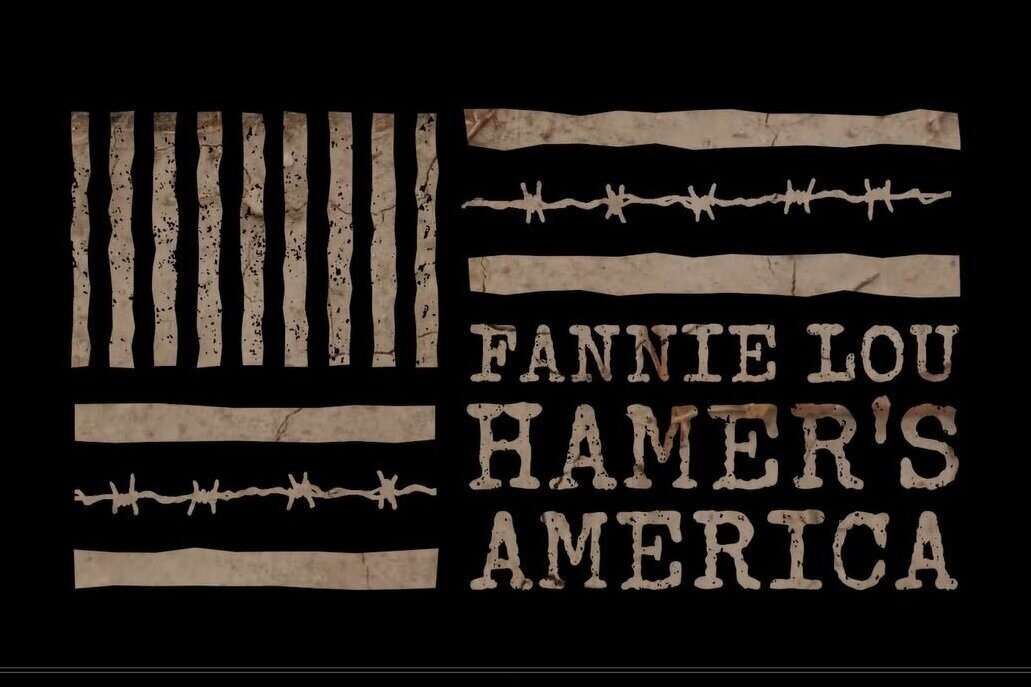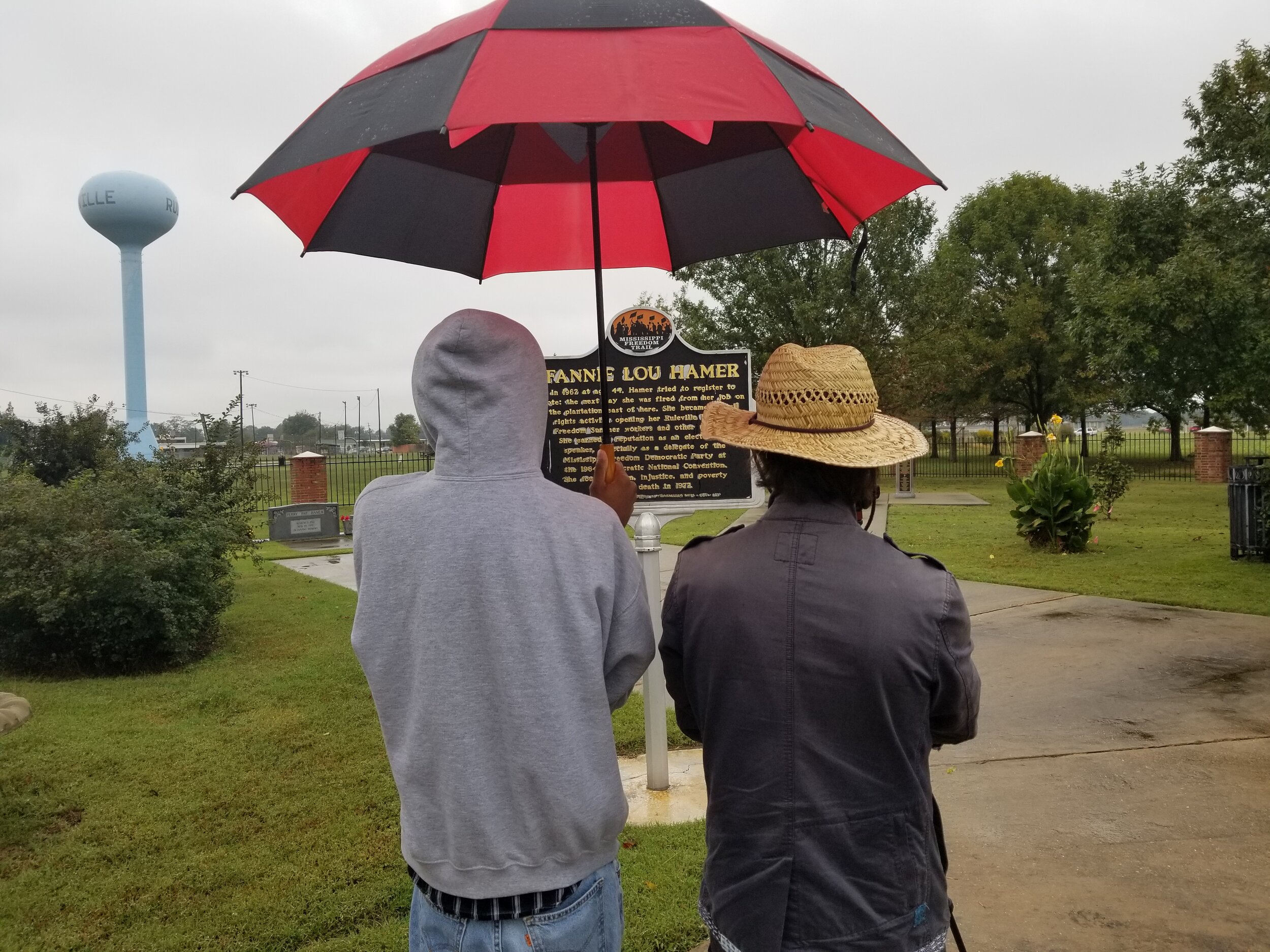
OUR STORY
The Film.
Fannie Lou Hamer’s America is an original documentary film told through the public speeches, personal interviews, and powerful songs of the fearless Mississippi sharecropper-turned-human-rights-activist.If you’ve ever heard of Fannie Lou Hamer, odds are you were introduced to her through the heart-wrenching testimony she delivered before the 1964 Democratic National Convention’s Credentials Committee. As significant as Hamer’s 1964 DNC speech was and is, her testimony is but one moment within the activist's career that spanned nearly 15 years and took place before audiences - in every region of the country. One of the movement’s pre-eminent orators, Hamer used stories from her own life to call America to account for the racism that defined every aspect of her existence—from the turn-of-the-century cotton plantations of the Mississippi Delta where she was reared, to her death in an all-black hospital in 1977. Building A Team.
The concept for the film began in 2005 when Hamer’s great niece, Monica Land wanted to see a documentary on Hamer featuring members of her family. Land had seen many docs on Hamer, but never with any of her family members talking about her life prior to her activism. Land began trying to put together a film crew and started with her cousin, film producer, Sulla Hamer (The Usual Suspects, Love Field, The Accused, Unlawful Entry) who was working with TV One at the time. Sulla referred her to producer, Keith Beauchamp, who specialized in films from the civil rights era. Beauchamp was speaking abroad about his film, The Untold Story of Emmett Louis Till, which was also released in 2005.Beauchamp jumped at the chance to work on a film about Fannie Lou Hamer as it had been his goal to do so. Beauchamp introduced Land to Dr. Davis W. Houck a professor at Florida State University. Houck, like Beauchamp, was also an Emmett Till historian as well as a Fannie Lou Hamer historian and scholar. Houck was working on a book, To Tell It Like It Is: The Speeches of Fannie Lou Hamer (2010). Houck was delighted to join the project team and introduced Land to Dr. Maegan Parker Brooks, with whom he was working on the book about Hamer’s speeches. Brooks was also a Fannie Lou Hamer historian and scholar and eventually penned two additional books about Hamer, A Voice That Could Stir An Army: Fannie Lou Hamer and the Rhetoric of the Black Freedom Movement (2014) and America’s Freedom Fighting Woman: Fannie Lou Hamer (2020). Houck, who became the Fannie Lou Hamer Professor of Rhetorical Studies at Florida State University in 2016 also introduced Land to Joy Davenport who was working on a film, M.F.D.P., detailing Hamer’s formation of the Mississippi Freedom Democratic Party and filmmaker Pablo Correa. Finally having an amazing team of Fannie Lou Hamer scholars, the group set out to bring Hamer’s story to life using only her voice in the film. Robert “R.J.” Fitzpatrick joined our team once we started filming. Through the research initiated by Brooks and Houck, who had been researching Hamer’s life for several years, the team uncovered archival audio and video footage, articles, photographs, and television appearances that had not been seen in more than 40 or 50 years! Houck also came across personal handwritten letters that Hamer wrote to her good friend and confident, Rose Fishman. Those letters, used in the film, paint a more vulnerable and personal side of the civil rights activist. Continuing on a treasure hunt of sorts, they spent countless hours looking for “lost” materials of Fannie Lou Hamer and then transcribing that material to be used in the film. To get the film on the desired platform, PBS, Land reached out to activist Heather Booth, who was not only a donor to the film, but she also worked with Fannie Lou Hamer during Freedom Summer in 1964. Through a friend of Booth’s, Land was introduced to Selena Lauterer, a stations relations agent and founder of Artemis Independent in 2020. For the next two years, Lauterer used all of her skills, ingenuity and resources to ensure Fannie Lou Hamer’s America made it to PBS. Lauterer and Land connected with the incredible and immensely dedicated Chris Hastings, executive producer of America ReFramed at GBH and WORLD Channel, and the rest is history!If ‘Our Story’ seems like everything fell right into place, it didn’t. It was a long and difficult journey. Among our many challenges was the search for footage of Fannie Lou Hamer that we knew existed, but couldn’t find because it had either been destroyed, lost, misfiled or not filed at all. One of the tragedies we discovered was that a lot of video and audio footage from that era is sitting in boxes deteriorating in attics, basements, or storage rooms, waiting for some compassionate and willing soul to organize it. Another issue was determining who actually owned the footage and getting them to allow us to use it. Some did. Others did not. Our quest to have this film focus on Fannie Lou Hamer’s family and life prior to her activism soon went off the rails as we failed to find enough archival footage of her speaking on those subjects. Determined to have her tell her own story in her own words – without the benefit of talking heads or narration - our original concept for the film shifted to highlight the footage we did have. Another significant obstacle that persisted for well over a decade was funding the film. Archival footage, while invaluable and absolutely vital to preserve our history and tell our stories, is insanely expensive. We learned that many film projects like ours – worthy projects never see the light of day because they simply can’t afford the footage fees. We encountered this issue over and over again. And without the help, the support and the continued direction and encouragement of Jed Oppenheim and the W.K. Kellogg Foundation, this film would never have been produced. Jed was a true warrior for us, and he went way above and beyond the call of duty to see this production and our curriculum completed. We can never thank Jed and the Kellogg Foundation enough for the tremendous financial footing they gave us. We had other amazing, willing, and continued benefactors, namely, the Mississippi Humanities Council (MHC) and the Mississippi Delta National Heritage Area (MDNHA). Thank you Dr. Stuart Rockoff, Carol Anderson, Dr. Rolando Herts and your staffs for their wonderful and gracious support. And thanks also to our many individual and corporate donors who from the very beginning, believed in this project and didn’t hesitate to support it. And they waited so patiently for years, to see the finished product. Thank you!“Fannie Lou Hamer’s America”
Opens 10th Season of America ReFramed on PBS
(Aired on PBS - Feb. 22, 2022 and WORLD Channel - Feb. 24, 2022. Now streaming on most platforms )
Watch our promotional PBS video and the trailer featuring Fannie Lou Hamer’s America and 10 years of programming on the award-winning series, America ReFramed.
A tentpole program of public television’s WORLD Channel, America ReFramed brings to life compelling stories, personal voices and experiences that illuminate the contours of our ever-changing country. The award-winning documentary series America ReFramed, a co-production of WORLD Channel and American Documentary, Inc., launches its landmark tenth season with the world premiere of Fannie Lou Hamer’s America, a portrait of the fearless Mississippi sharecropper-turned-human-rights-activist. The season began with a special presentation on PBS on Tuesday, February 22, 9 pm, followed by its broadcast on WORLD Channel on Thursday, February 24. This marked the weekly series’ move to its new Thursday time slot. Meet The Makers!
On February 15, 2022, a Meet The Makers panel was held to discuss the upcoming film, Fannie Lou Hamer’s America, and the influence Hamer has had on so many. Moderated by Erika Dilday, an executive producer with America ReFramed and presented in partnership by WORLD Channel, America ReFramed and Black Public Media, the panel featured filmmaker and Fannie Lou Hamer historian Joy Davenport, the director, editor and music composer of Fannie Lou Hamer’s America and Monica Land, the executive producer of the film and Hamer’s great niece. Also featuerd on the panel were historian Keisha N. Blain, author of Until I Am Free: Fannie Lou Hamer's Enduring Message to America and Aunjanue Ellis, an Oscar®-nominated actress and activist.Funding for Fannie Lou Hamer’s America was provided by: The W.K. Kellogg Foundation, Mississippi Humanities Council, Mississippi Delta National Heritage Area, GBH Voices and Equity Fund made possible by the Rita J. and Stanley H. Kaplan Family Foundation, Inc., the Jonathan Logan Family Foundation, the Ford Foundation|JustFilms, the Better Angels Society and others. This program was also made possible by contributions to PBS stations from viewers like you.Video Snippets.
In childhood, Fannie Lou Hamer, her parents and her 19 siblings lived with hunger. Like many young Black children, she began picking pounds and pounds of cotton in the fields, dropping out of school at the age of 12. It was a lesson about poverty and race that was not lost on her. This is her story. Featured below are several short videos taken from the film, Fannie Lou Hamer’s America, that highlight pivotal moments in her life and career.
Up Close and Personal:
Fannie Lou Hamer’s America not only features rare artifacts from her activist career, but the documentary also engages Hamer’s life story — as she told it —foregrounding such themes as the injustice of growing up black and poor in the Mississippi Delta, white supremacist backlash to black voter registration, police brutality, and access to quality healthcare and affordable nutrition.
Photo: Director/Editor Joy Davenport films in a Mississippi Delta field.
Videographer R.J. Fitzpatrick and Davenport break from filming at the Fannie Lou Hamer Memorial Garden and Park in Ruleville, MS.
Drawing Connections.
The film draws connections between these core themes that compelled Hamer’s activist struggle and their clear contemporary resonances.In an era of the Black Lives Matter Movement, where heightened state surveillance, increasing inequality, and police brutality continues, Hamer’s prophetic mission is no less urgent and no less relevant today than it was 50 years ago.Assembled by a team of critically acclaimed civil rights scholars and historians, and the Hamer family, Fannie Lou Hamer’s America weaves its story from the fabric of a voice that challenged the country during her lifetime—and well beyond!Veteran and Emmy award-winning producer Stephanie Frederic films Jacqueline “Cookie” Hamer Flakes (seated l and far r), Fannie Lou Hamer’s daughter, and Jimmy “Sonny” Lacey, Hamer’s nephew (seated center) for the “Beyond The Lens” family segment of Fannie Lou Hamer’s America.
Fannie Lou Hamer’s America project wins “Preserver Of Mississippi Culture” Humanities Award
Fannie Lou Hamer’s America
Our director and editor, Joy Davenport, created our first trailer/teaser in March 2016.







